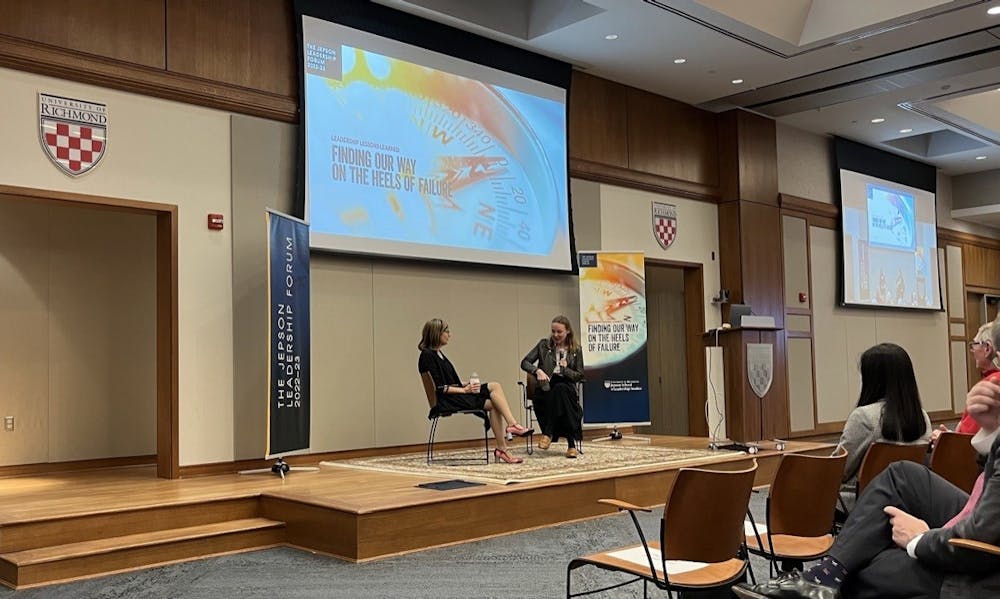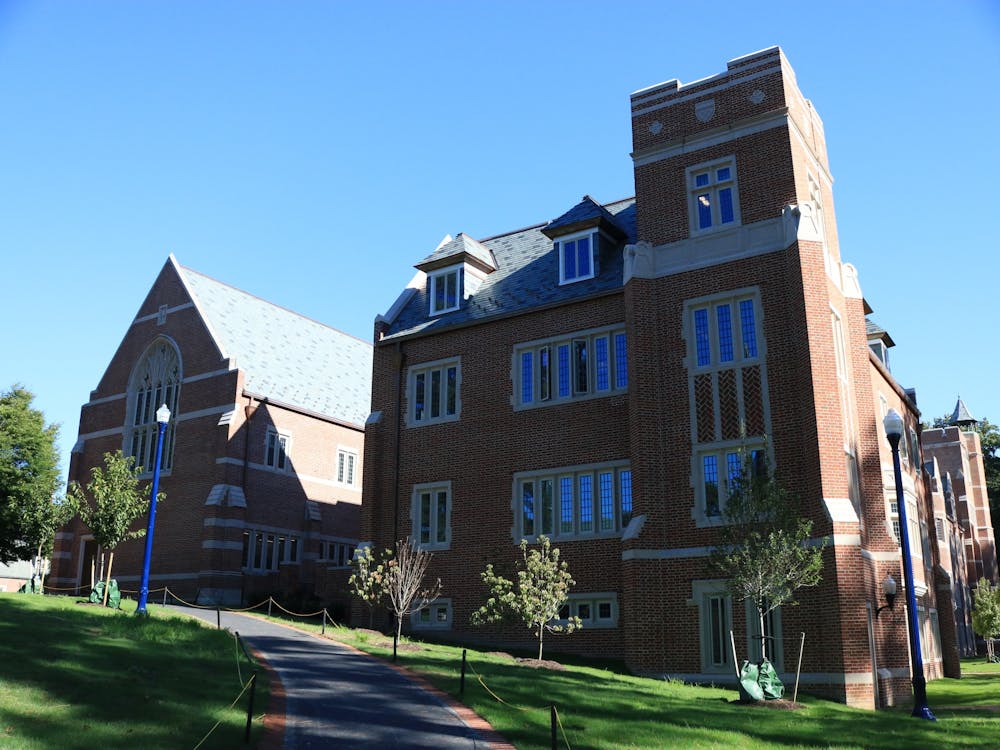Alice Dreger, historian, journalist and author of “Galileo’s Middle Finger,” spoke about free speech and the dangers of cancel culture in a lecture at the Queally Center for Admission and Career Services on Oct 24.
The climate of academia has changed over the last decade, she said. Describing what she termed the “excesses of our successes,” Dreger said positive developments like greater sensitivity in conversation have led to negative impacts like self-censorship.
Dreger said students are increasingly nervous to speak out in class for fear of offending others, and professors are “cleaning” their curriculums to avoid topics that might trigger students.
“I think it's important that students engage and try not to be fearful in terms of conversations,” Dreger said.
Her book, “Galileo’s Middle Finger,” tells the story of her advocacy against highly invasive surgeries performed on intersex individuals at a young age. She then documents the cases of other researchers who have been shunned or canceled by the academic establishment after pursuing research that some people deemed harmful.
During the speech, Dreger gave the example of Napoleon Chagnon, an anthropologist whose career was ruined after he was falsely accused of ethnocide in the book “Darkness in El Dorado.”
Nearly 80% of faculty at American universities are not on the tenure track, a proportion that has increased in the last few years, she said. This also contributes to the decline of free expression because professors are afraid to lose their jobs after expressing controversial ideas.
Free inquiry is supported when individuals adopt a sense of humility regarding their own beliefs and exercise caution when engaging with and sharing political content online, she said.
Senior Kathrina Durante, who organized the event in collaboration with the Jepson Leadership Forum, said the talk was important to help students understand the politics involved in higher education.
“Considering the politics of research and higher ed, I thought that this was like an ideal talk to go to further the knowledge and context of what higher ed looks like,” Durante said.
Dreger retold how she got blowback for her own research. She resigned from Northwestern University after a dean tried to censor her work because it did not align with the school’s branding, she said.
The dean took down an online edition of the journal Atrium that Dreger had guest edited and established a committee to review future editions after the journal examined controversial practices in nursing, she said in her resignation letter.
Enjoy what you're reading?
Signup for our newsletter
Her case points to the larger issue that universities under intense public scrutiny or facing financial challenges are often more focused on research that brings in money and positive press, she said.
Bonnie Atwood, an alum of the University of Richmond School of Law who attended the talk, said it was important for students to expose themselves to multiple perspectives.
“You need to hear different ideas, diversity,” she said. “Too many people want to live in echo chambers.”
To foster free inquiry, Dreger suggested that UR should administer a campus expression survey designed by the Heterodox Academy, which she is a board member of, and have conversations about the results.
Contact city and state writer Kalina Kulig at kalina.kulig@richmond.edu.
Support independent student media
You can make a tax-deductible donation by clicking the button below, which takes you to our secure PayPal account. The page is set up to receive contributions in whatever amount you designate. We look forward to using the money we raise to further our mission of providing honest and accurate information to students, faculty, staff, alumni and others in the general public.
Donate Now



